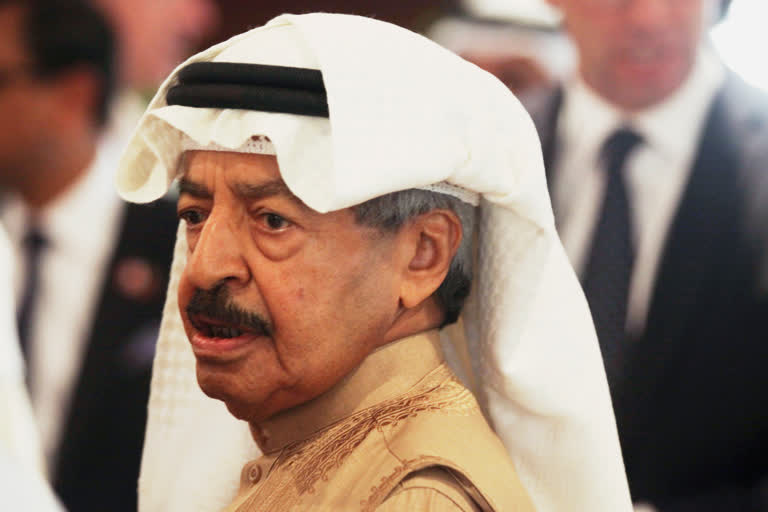Dubai: Bahrain’s Prince Khalifa bin Salman Al Khalifa, one of the world’s longest-serving prime ministers who led his island nation’s government for decades and survived the 2011 Arab Spring protests that demanded his ouster over corruption allegations, died on Wednesday. He was 84.
Bahrain's state-run news agency announced his death, saying he had been receiving treatment at the Mayo Clinic in the United States, without elaborating. The Mayo Clinic did not immediately respond to a request for comment.
Prince Khalifa’s power and wealth could be seen everywhere in this small nation off the coast of Saudi Arabia home to the U.S. Navy’s 5th Fleet. His official portrait hung for decades on walls alongside the country’s ruler. He had his private island where he met foreign dignitaries, complete with a marina and a park that had peacocks and gazelle roam its grounds.
The prince represented an older style of Gulf leadership, one that granted patronage and favours for support of the Sunni Al-Khalifa family. That style would be challenged in the 2011 protests by the island’s Shiite majority and others, who demonstrated against him over long-running corruption allegations surrounding his rule.
Though less powerful and frailer in recent years, his machinations still drew attention in the kingdom as a new generation now jostles for power.
Read:|WHO calls for 'fair allocation' after Pfizer's vaccine announcement
“Khalifa bin Salman represented the old guard in more ways than just age and seniority,” said Kristin Smith Diwan, a senior resident scholar at the Washington-based Arab Gulf States Institute. “He represented an old social understanding rooted in royal privilege and expressed through personal patronage.”
Prince Khalifa was born into the Al Khalifa dynasty that for more than two centuries has ruled Bahrain, an island in the Persian Gulf whose name in Arabic means the “two seas.” The son of Bahrain’s former ruler, Sheikh Salman bin Hamad Al Khalifa who ruled from 1942 to 1961, the prince learned governance at his father’s side as the island remained a British protectorate.
Prince Khalifa’s brother, Sheikh Isa bin Salman Al Khalifa, took power in 1961 and served as monarch when Bahrain gained its independence from Britain in 1971. Under an informal arrangement, Sheikh Isa handled the island’s diplomacy and ceremonial duties while Prince Khalifa ran the government and economy.
The years that followed saw Bahrain develop rapidly as it sought to move beyond its dependence on dwindling oil reserves. Manama at that time served as what Dubai in the United Arab Emirates ultimately became, a regional financial, service and tourism hub. The opening of the King Fahd Causeway in 1986 gave the island nation its first land link with its rich and powerful neighbour, Saudi Arabia, and offered an escape for Westerners in the kingdom who wanted to enjoy Bahrain’s alcohol-soaked nightclubs and beaches.
But Prince Khalifa increasingly saw his name entangled in corruption allegations, such as a major foreign corruption practices case against aluminium producer Alcoa overusing a London-based middleman to facilitate bribes for Bahraini officials. Alcoa agreed to pay $384 million in fines to the U.S. government to settle the case in 2014.
The U.S. Embassy in Manama similarly had its own suspicions about Prince Khalifa, writing in cables that the prince had “off-the-books access to income from the state-owned enterprises” such as the Bahrain Petroleum Co. and Aluminum Bahrain, the country’s aluminium producer.
“I believe that Shaikh Khalifa is not wholly a negative influence,” former U.S. Ambassador Ronald E. Neumann in 2004 in a cable released by WikiLeaks. “While certainly corrupt he has built much of modern Bahrain.”
